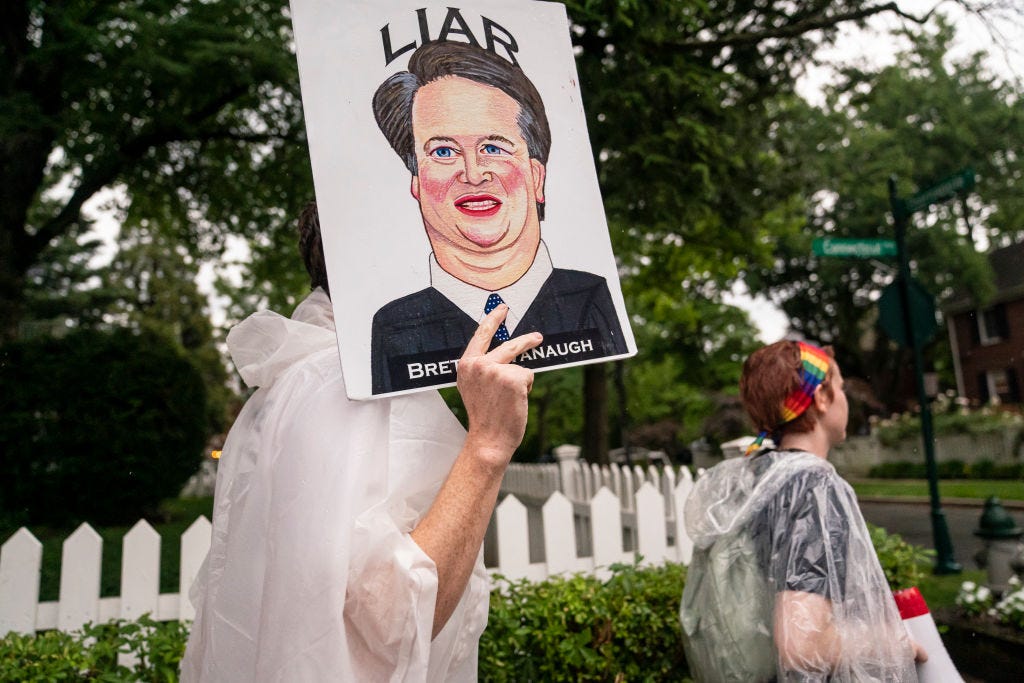OpenTable as the latest weapon on the reproductive rights front
…and more TOS-violating online restaurant behavior
Everything is awful… but protest via fake OpenTable reservation might be a new one.
Days after America’s Supreme Court handed down a ruling sending the country one step closer to Margaret Atwood’s Gilead, one conservative justice was forced to — oh horror of horrors — exit through the back door of Morton’s the Steakhouse after protestors massed in front of the restaurant. It was high profile enough to warrant national headlines and days of Twitter discourse. It’ll probably set a precedent for protesting this and other court decisions in the near future — one D.C. group has already publicly offered cash to service workers who report Justice-sightings at restaurants around town.
Shortly after Kavanaugh’s hasty steakhouse exit, an internal email from a Morton’s exec obtained by Politico warned managers at its other locations that they may be flooded by fake online reservations. Indeed they were! As reported by Politico, several Mortons’ locations received plenty of fake reservations via OpenTable using names like Roe Wade, Abortion Rights, and Pro Choice, among other creative choices.

Businesses as punching bag
Restaurants have often found themselves in the middle of online firestorms when big news hits. In an increasingly divided America, angry commenters and reviewers have attacked restaurants for masking and other Covid-era safety policies or after news breaks about unsavory behavior by a chef, owner, or other staff member.
This behavior is so common that Yelp added tools to help identify and block what it deems “extreme attempts to manipulate a business’s ratings and reviews” in 2012. (Of course, in those rose-hued internet days, Yelp was mostly concerned about fake five-star reviews, not fundamental human rights… oh, how far we’ve come.)
Yelp’s still displaying a warning on Morton’s page about the increased media attention, and has paused everyone’s ability to leave any type of review. Earnest would-be reviewers are encouraged to check back at a later date, presumably when the publicity around this event blows over.
What happens when everything’s a lie?
In an unrelated interview a few weeks ago, a source described himself as “a big 3.5 versus 4-stars guy.” When I questioned what he was talking about, he explained that a four-star online rating — for a restaurant, for a hotel, for whatever — was the minimum he’d consider when deciding what to buy or where to dine. I suppose this works well if the ratings and reviews are trustworthy and legitimate. Unfortunately, that’s not always the case.
The latest in online review chaos is a scam to extort cash from high-profile restaurants.



